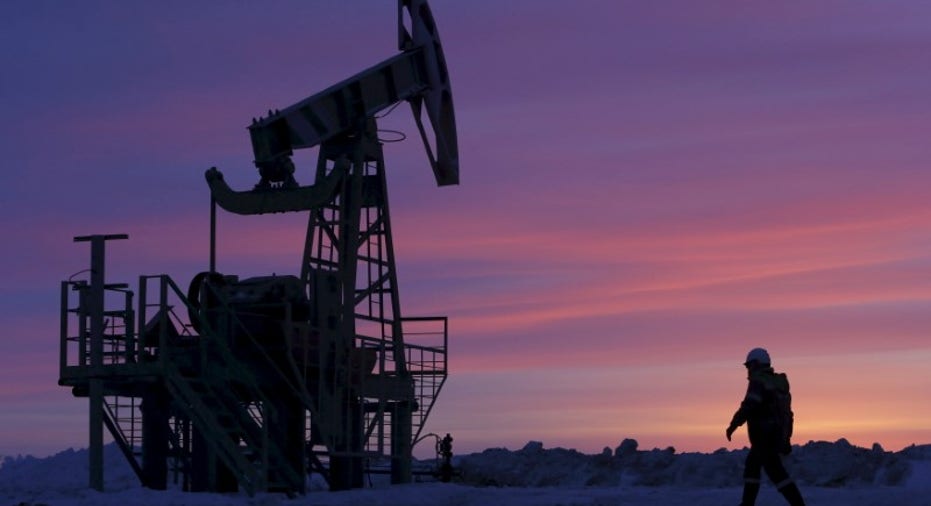Despite Sanctions, Russia's Oil Industry Powers On

Exxon Mobil Corp. (NYSE:XOM) is suffering from sanctions on Russia. The same can't be said for other big Western energy companies, or for Russia's oil production.
The sanctions, put in place by the U.S. and European Union in 2014 after Russia's annexation of the Crimea region of Ukraine, were meant to limit Russia's pursuit of new technology for extracting more crude oil and natural gas.The measures specifically targeted deepwater drilling planned in the Black Sea, Arctic operations and the use of fracking technology in Siberia.
The terms were a blow to Exxon because drilling in those areas was at the heart of a landmark deal the company struck a few years before to partner with state oil firm PAO Rosneft. The company sought a waiver from U.S. sanctions to drill in the Black Sea, but was rejected last month by the Trump administration.
At the same time, some of the company's European rivals are moving ahead with projects in Russia, many under partnerships begun before the sanctions. BP PLC (NYSE:BP) was allowed to keep its nearly 20% stake in Rosneft, which contributed $590 million to its net earnings in 2016.
Italy's Eni SpA (NYSE:E) is preparing to drill a Black Sea well later this year as part of a partnership with Rosneft, and also plans to explore the Arctic waters of Russia's Barents Sea. The company has proceeded because the EU allowed partnerships in place at the time of sanctions to continue, Eni has said.
The U.S. didn't grant exemptions for existing partnerships, as Exxon's experience showed. An EU spokeswoman said that while some differences exist between how sanctions have been applied by different countries, these have been limited and don't undermine the overall impact of the restrictions.
Other European companies proceeding with projects in Russia include Norway's Statoil ASA (NYSE:STO), which has another pre-existing venture with Rosneft in Russia's Samara region that will require advanced drilling techniques similar to modern fracking in the U.S. -- wherein sand, water and other chemicals are blasted into layers of dense rock to release oil and gas. The company also continues an oil-drilling project in Siberia.
France's Total SA (NYSE:TOT), together with a Russian partner subject to sanctions, is building a massive natural-gas export plant, a project that advanced in spite of financing limitations related to sanctions by turning to China. The companies have said they obtained clearance from the EU to proceed.
Sanctions didn't prevent Royal Dutch Shell PLC (NYSE:RDSA) and four other European companies last month from announcing $10 billion in financing for a natural-gas pipeline to Germany that the EU opposes.
While some diplomatic and oil-industry experts believe the sanctions have crimped Russia's oil progress, the uneven application of the restrictions has led to questions about how effective they have really been.
"When sanctions are not uniform across the board, you get unintended consequences," said Bill Arnold, a former Shell executive and senior vice president of the U.S. Export-Import Bank who teaches about the geopolitics of oil at Rice University. "If the ultimate objective was to curb Russian industry, it isn't clear that's taken place."
The sanctions weren't specifically designed to curb current Russian oil production, and they haven't. Output rose above 11 million barrels a day last year, the highest level in decades.
That reflects more than the limits of sanctions. Other economic forces, such as a sharp devaluation of the ruble, played a role. Companies in the country have been able to sell oil in dollars and pay for drilling with Russia's currency, allowing them to reduce costs and invest more toward boosting output.
Although President Donald Trump spoke of loosening sanctions on Russia during his campaign, political resolve to keep the U.S. sanctions in place has hardened in recent months.
Last month, Secretary of State Rex Tillerson, Exxon's former chief executive, said relations between the countries had reached "a low point" after the Pentagon launched airstrikes on a Syrian military base believed to have been involved in a chemical-weapons attack against civilians. Russia has supported the regime of Syrian President Bashar al-Assad.
Analysts expect the EU sanctions to be renewed before they expire in July. However, they are reviewed every six months, and debate on whether to keep them could be fiercer by year's end given new elections, burgeoning energy needs and other factors.
In seeking a waiver from the U.S. sanctions, Exxon was motivated by a desire to maintain a foothold in one of the world's last remaining oil frontiers. Executives feared the loss of their competitive advantage, winning a hard-fought battle in 2011 to access Russia's vast resources, the first such deal under Russian President Vladimir Putin.
The Trump administration on April 21 rejected the request, which originally had been made when Barack Obama was president. Recently, the proposal had been circulated among various federal departments, according to people familiar with the matter.
An Exxon spokesman said the company sought permission to drill in the Black Sea to "meet its contractual obligations under a joint venture agreement in Russia, where competitor companies are authorized to undertake such work under European sanctions."
Igor Yusufov, a former Russian energy minister, said sanctions have forced Russian producers to use Chinese equipment, which was cheaper than U.S. or Western equipment but more prone to breakdowns in Russia's extreme conditions.
Sanctions also limited the flow of money to Russian companies, and they have at times upended European companies' projects. Sanctions disrupted Shell's plan to form a strategic alliance with Russian gas giant Gazprom and forced the company to put on hold efforts to develop Siberia's shale fields.
They also appear to have curbed some of Mr. Putin's military ambitions voiced after the Crimea annexation, said Edward Chow, a former Chevron Corp. executive and now an energy fellow at the Center for Strategic and International Studies.
"They have certainly had an impact," he said.



















